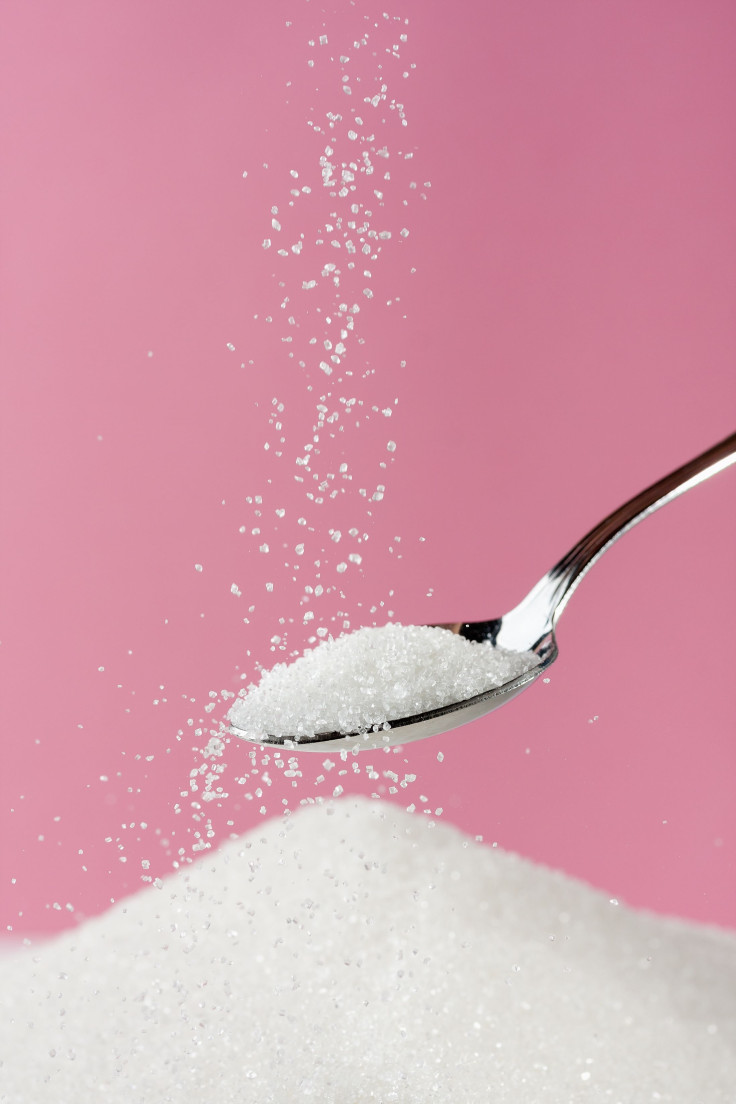FDA Approves Advantame, New Artificial Sweetener With No Calories, But Is It Safe?

A new artificial sweetener has been approved by the Food and Drug Administration (FDA) and may be used to replace sugar with its no-calorie benefits. Splenda, Equal, and the recently popular Stevia, have taken over the artificial sweetening market since the 1980s; however, the new FDA-approved advantame, which has no brand name yet, is now the sixth sweetest food additive.
Advantame is traveling to the United States all the way from Japan’s Ajinomoto Company, which will also be able to replace the infamous high fructose corn syrup in foods and beverages. According to the FDA, advantame is a free-flowing, water soluble, white crystalline powder that remains stable at high temperatures, which makes it a versatile food-enhancing sweetener for cooking and baking applications.
It's pharmacologically very similar to aspartame, which is what the long-standing sweetener Equal contains. However, the new sweetener is unlike others preceding its approval, as it is a high-intensity sweetener that makes it roughly 20,000 times sweeter than sugar and 100 times sweeter than aspartame, according to the Calorie Control Council.
The new product may become a staple sweetener on family countertops for coffee, toppings, syrups, baked goods, non-alcoholic beverages, frozen desserts, jams and jellies, chewing gum, fruit juices, and puddings.
The FDA based their approval on the results from 37 animal and human studies that were conducted by the Japanese manufacturer. Ajinomoto first began the FDA-approval process for advantame in 2009. It has already been approved in Australia, New Zealand, and approvals are currently pending in the European Union, as well as Japan. The safety studies were designed to identify the sweetener’s possible toxic side effects, such as reproductive, neurological, and cancer-causing effects and found it to be safe for human consumption.
It isn’t perfect though. For those with the genetic birth defect phenylketonuria (PKU), there is one noticeably important health risk that advantame contains, and that’s the aspartame. Those with PKU should avoid or limit their use of aspartame because of how difficult it is to metabolize, warns the FDA.
PKU causes the amino acid, phenylalanine to build up in the body, which is why it’s important to limit excessive intact if they can. Phenylalanine is in aspartame, and a buildup of the protein-building amino acids can cause a variety of health issues such as seizures, hyperactivity, skin rashes, and for children, mental retardation, small head size, and stunted growth.
Aside from those diagnosed with PKU, the extremely sweet new artificial food additive, is suggested for diabetics to use to curb their sugary cravings. Diabetics need to plan their diets carefully and limit their sugar intake. With the FDA-approval of artificial sweeteners, found in diet sodas, diabetics can enjoy the sweets without the health risks. However, as researchers study artificial sweeteners more, they find that there are increased rates of tumor development in animals from carcinogens, according to the American Cancer Society.
The FDA recognizes the possible danger, which is why it’s necessary to regulate the use of aspartame and other artificial sweeteners in the United States. In 2007, the FDA stated:
Considering results from the large number of studies on aspartame's safety, including five previously conducted negative chronic carcinogenicity studies, a recently reported large epidemiology study with negative associations between the use of aspartame and the occurrence of tumors, and negative findings from a series of three transgenic mouse assays, FDA finds no reason to alter its previous conclusion that aspartame is safe as a general purpose sweetener in food.
It could be safer to choose alternative sweeteners, since advantame contains the aspartame ingredient, though the FDA hasn’t announced legitimate cancer-causing findings.



























